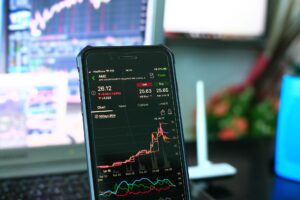
GameStop, the beloved meme stock, is experiencing a resurgence following a social media post purportedly from the investor known as “Roaring Kitty.” The post claimed a large investment in the video game retailer.
The excitement ignited after a Reddit account linked to Keith Gill shared a screenshot, indicating he owned 5 million GameStop shares, representing nearly 2% of the company’s stock and valued at over $100 million.
Gill gained fame in 2021 for rallying online investors to support GameStop, resulting in a surprising spike in the struggling company’s stock and causing a financial squeeze on Wall Street firms betting against the retailer.
Back in 2021, a post revealed that Gill held approximately 200,000 shares worth $30.9 million. The recent post is part of a series following a prolonged silence from Roaring Kitty’s accounts. However, the authenticity of the post remains unverified, and neither Gill nor GameStop responded to inquiries for comment.
On Monday, GameStop’s shares opened above $40 each, a more than 70% increase from Friday’s close, though they later retreated somewhat. Other meme stocks, such as AMC and Blackberry, also saw their shares rise on Monday, despite their stock movements often seeming disconnected from the companies’ fundamentals.
Analysts have suggested that the initial meme stock surge was driven by increased savings and free time during the pandemic, bolstered by government support programs and the suspension of many in-person activities.
This year, with markets rising again, trading firms like Charles Schwab and Robinhood have reported a renewed increase in new accounts and activity from retail investors.
GameStop capitalised on this renewed interest last month, raising $933 million through a share sale. However, this flurry of activity has caused unease in the financial industry and led to hearings in Washington on the GameStop phenomenon in 2021.
In an interview last month with business broadcaster CNBC, former financial regulator Jay Clayton, said: “It bothers me on many levels. It’s a lot closer to gambling than it is to trading and it’s certainly not investing. Is this something we should be tolerating in our markets? Whether it’s legal or illegal, I don’t think so.”



